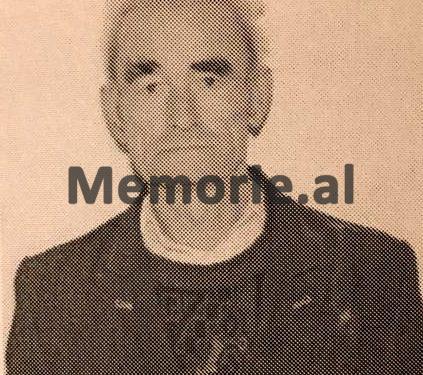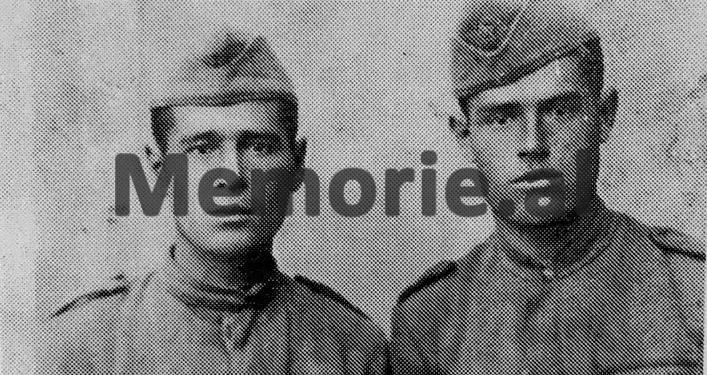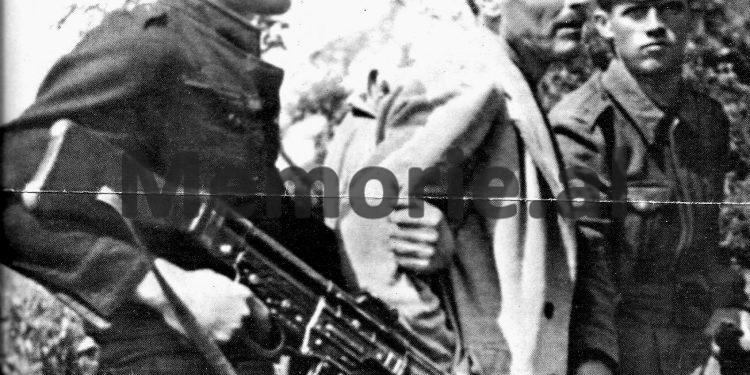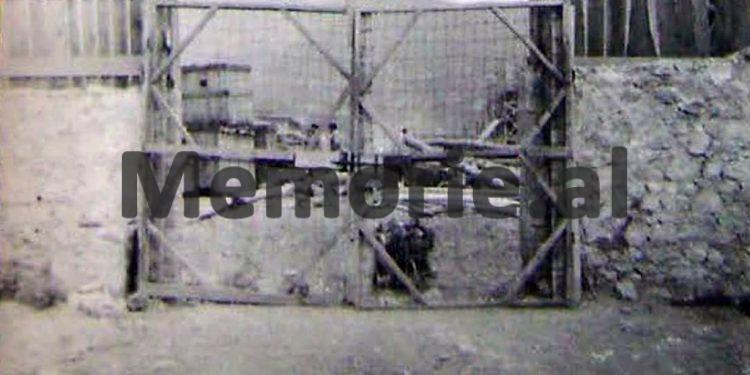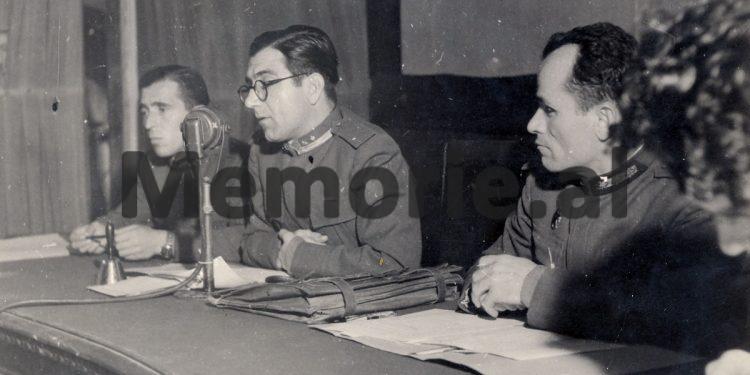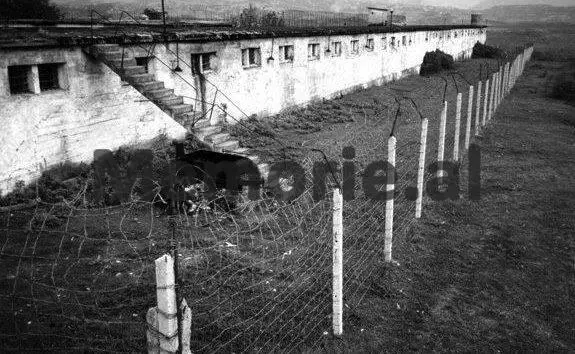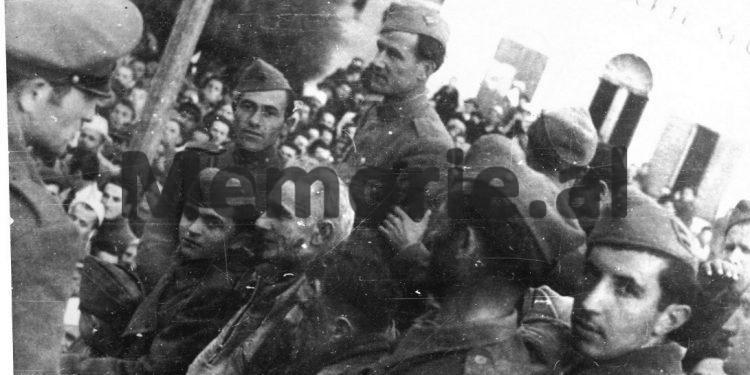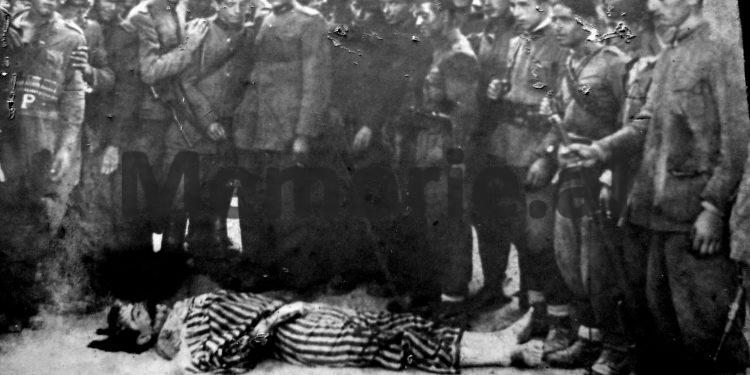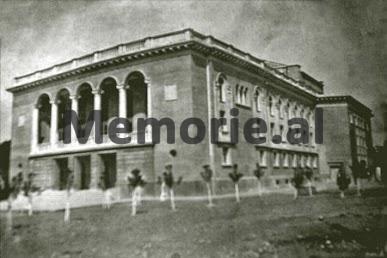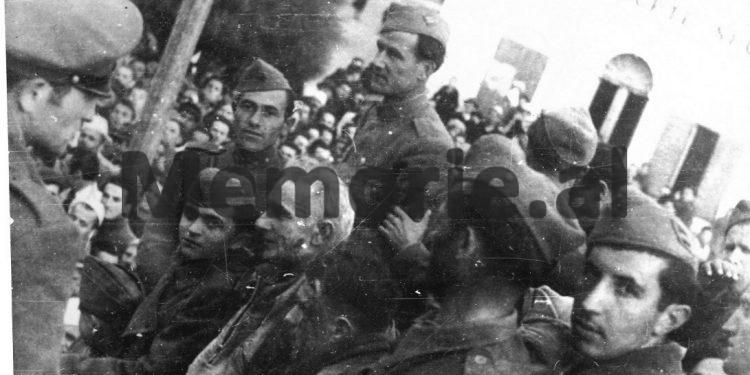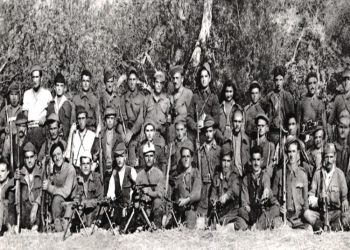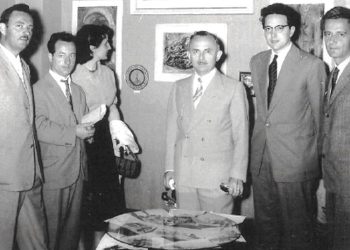Dashnor Kaloçi
Memorie.al publishes the unknown story of the Dajani family from the village of Rrapsh-Starje in the Malësia e Madhe, who, although known for their patriotic past by her two husbands, Pjetër and Luc Gjoku, who had fought and were killed against Serbian forces -Malasean alongside Dedë Gjon Luli, immediately after the communists came to power, they were persecuted, with arrests, imprisonment and internment. Testimony of Nikol Gjek Dajani, for the punitive operation undertaken by the People’s Defense Division under the command of Major General Mehmet Shehu in their province to capture anti-communist resistance groups that continued to stay in the armed mountains. The escape to Yugoslavia of Nikolla’s brother, Palok Dajani, where he was sentenced to three years in prison by the UDB and the internment of their family in the terrible Tepelena camp, and the sentencing of the other brother, Zefi to three years in prison, after the Security he suspected that he too would escape. The arrest of Nikol Dajani in 1958 by the State Security forces, who accused him that in 1956 he had helped to escape from Albania the nephew of Abaz Kupi, Nderim Kupi with all his family, for which he was convicted initially with death in the trial that took place in the city of Shkodra, a sentence that was later reduced to 25 years in prison by the People’s Assembly, even though Nikola had not made a request for pardon of life ?!
“Immediately after the escape of my brother, Paloka, to Yugoslavia, we were interned with our family in the terrible camp of Tepelena, where we stayed for five years in a row. But the release and peace for our family would not last long, because we were deported again for the second time on March 1, 1958, and a few months later, in December of that year, I was arrested. After holding me for some time in the investigation of the Shkodra Branch of Internal Affairs, I was taken to court and sentenced to death, accusing me of “having escorted across the border, the family of Nderim Kupi, the nephew of Abaz Kupi”.
This is how Nikoll Gjek Dajani remembered his arrest and sentence, originating from the village of Rrapsh – Starje in Malësia e Madhe and living in the village of Shkjez, in the Municipality of Bushat, which shows all the sufferings and long ordeal of the family of during the period of the communist regime of Enver Hoxha, where he himself was sentenced to death and then pardoned, he suffered for 15 years in camps and prisons of the communist system.
Who is Nikoll Dajani, what is his past and that of his family and why did his brother, Paloka, escape from Albania in 1948? What were Nikolla’s connections with Abaz Kupi’s nephew, Nderim, and how did he manage in December 1956 to take the Kupi family to the city of Shkodra and transport them across the state border to Yugoslavia? How was he found out about that action and what was required during the investigation in the Shkodra Branch of Internal Affairs, before he was brought to trial and sentenced to death by shooting? Why did you spare Nikoll Dajani’s life and how did he spend his long years in prison in forced labor camps until 1973? For all these and other events and facts from his life, Nikoll Dajali tells in this article exclusively for Memorie.al.
Mr. Nikoll, what is your family’s past?
I was born in 1931, in the village of Rrapsh-Stare in the Malësia e Madhe, which is located where the province of Kelmendi begins, very close to the state border with Montenegro and from that place and the origin of our family. My family, like many other families in that area, is known for the patriotic traditions and wars that our ancestors waged against the Serbo-Montenegrin invaders at the beginning of the last century. Among those mountain men who fought with weapons in hand against the schooner were my two uncles, Pjetër and Luc Gjoku, who in 1911, were captured by the Serbo-Montenegrin forces, while fighting as part of the forces of Dedë Gjon Luli. They were captured in the battle of Podgorica by Shkaya soldiers, brutally tortured by them and burned to death with iron rods. While Uncle Luc died in the Podgorica prison from torture, Peter was able to escape from them and returned to the village, where he broke the news of the death of his brother, Luc Gjoku, in the Podgorica prison.
But during the occupation of the country in 1939-’44, what was the attitude of your family?
During the years of Nazi occupation of the country, my family did not interfere in the affairs of war and politics, but looked after their own troubles. Baba Gjeka, with his mother, Lena, were engaged only in agricultural work, with which they supported their eight children: Zefi, Paloka, Nikolla, Fran, Diella, Paska, Mrina and Drane.
But after the end of the war, how was your family treated by the communist regime and why did your brother, Paloka, escape from Albania?
Although our family had a patriotic past and two uncles had fought with weapons against the Serbo-Montenegrin forces in the period before the declaration of Independence, the communist regime that came to power at the end of 1944, did not look favorably on us and us considered as its opponents. Although the war had ended since the end of November 1944, the Prosecution Forces, commanded by Major General Mehmet Shehu, had arrived in the area of the Great Highlands and had undertaken an extensive operation against the anti-communist forces sheltering in our province. During that period of fighting which lasted until March 1945, when the communist forces took over and our province, my brother, Paloka, who had anti-communist convictions, came out openly speaking out against the actions taken by the communist forces against the population. innocent.
Did Paloka have any consequences for the attitude he was taking?
Initially not because they did not sue him and he was lucky that at that time, Paloka, together with his other brother, Zefi, were taken by soldiers and sent to a labor unit in Tirana. Even during this time that Paloka continued to perform military service, he continued to speak against the communist regime in Tirana to his comrades and on one occasion he even wrote some anti-communist slogans inside his military unit. Although Paloka was arrested several times and held in solitary confinement in the Tirana Garrison for removing the red star from his hat, he did not admit that he was the author of those slogans. But this was discovered a year later, after Paloka was released from the army and to escape safe arrest, he took the border road, and fled Albania leaving for Yugoslavia.
After Paloka escaped, what problems did you have as a family?
The escape of Paloka was the first escape in our entire province after the break-up with Yugoslavia, because until then there had been no border crossings, as Albania and Yugoslavia had had good relations. The escape of Paloka, who was sentenced to three years in prison in Yugoslavia, marked the beginning of a long ordeal of suffering and hardship for our family and our entire friendly circle. As soon as we heard the news of Paloka’s escape, on September 20, 1948, we were deported as a family to the terrible camp of Tepelena, where we stayed for five and a half years in the most inhumane conditions. Shortly before we were released from Camp Tepelena, the State Security arrested my brother, Zefi, fearing that he too would flee as soon as he was released from the army. After that he was sentenced to three years in prison, on the charge of non-denunciation, a sentence which he served all.
What about you Nicole, when you were arrested?
After being released from the internment of the Tepelena camp, our family returned to the village, Rrapsh-Stare of Malësia e Madhe, where they were subjected to even more suffering, as we were described as reactionary families and were under constant surveillance by the Security. of the State. At that time, just because Dod Nikoll Qarri married my sister, Mrije, he was sentenced to 15 years in prison. But the release of our family Dajani, would not last long, because a few years later, in March 1958, our family was interned again in the villages of Lushnja.
What was the reason for your family’s second internment?
A few months after we were family interned in the villages of Myzeqe, the State Security came there and handcuffed me while I was working in agriculture. After that I was sent to the city of Shkodra, and from the first day when I was interrogated in the investigation of the Internal Affairs Branch, I understood the real reason why I was arrested.
What was she…?!
It had to do with an event that took place two years ago, in 1956, when I had taken across the border to Yugoslavia, the family of Abaz Kup’s brother. With Abazi’s nephew, Nderim Kupin, I was acquainted while performing compulsory military service in a labor ward in 1953, as soon as I had just returned from exile in Tepelena. The close friendship with Honor, with whom we had returned as brothers, I maintained even after the period when I was released from the army.
What about Honor with his family, where did they live at that time?
At that time, Nderimi was interned with his family (together with his mother and sister) in the city of Shkodra. I went at night from my village and met him secretly. As Nderim was in danger of being arrested at the time, he asked me to take him abroad to Yugoslavia.
How did you respond to what Honor asked you to do?
According to the conversation we had, I went to Shkodra at night, and took his mother and sister, and with a friend of ours, named Llesh Lyketa, we set off on foot towards the mountains to my village. We had a friend, Lleshi, since the time of the army, while his father had been killed in the mountains by the communist forces. After staying in the mountains for four days and nights, on the fourth day I was able to cross the border without being noticed by the border forces.
But how did you find out you were the main perpetrator who had helped the Kupi family escape?
After leaving Yugoslavia, Nderim Kupi and his family were able to gain political asylum in the United States, but two years later, through cooperation between the UDB and the State Security, it was learned that I was the man who had accompanied them. those across the border, which also led to my arrest.
But what were you asked about during the investigation and what was the decision of the trial panel?
During the investigation of the Internal Branch of Shkodra, I was detained for four months, and then I went to court, which took place in open court. During the investigation period, I was constantly asked about the connections I had with Nderim Kupi and his family, and if I had escorted someone else across the border.
Did you accept the accusation made against them?
They had everything documented and I had no choice but to accept the accusation made against me. After four months of investigation, on February 14, 1959, I was brought to trial in open court. This was done because the State Security wanted to show its power, and to expose me in front of the terrorized prisoners of the city of Shkodra.
How many years where you sentenced?
After the court gave the verdict, sentencing me to death, by shooting, they asked me for the last word? I declared, that: I have nothing to say, obey the law. After the verdict was handed down, I was again handcuffed in the cells of the Shkodra Branch, until the answer came from the High Court, following an appeal made by the Prosecution itself. The Supreme Court also upheld the first-instance decision, and when asked what my last word was, I replied in the same way as the first time. Following the Supreme Court ruling, my case was referred to the People’s Assembly, which strangely spared my life and sentenced me to 25 years in prison. The President of the Internal Affairs Branch of Shkodra, Major General Hilmi Seiti, together with the Prosecutor, Mina Mici, communicated that to me after 59 days in the cell. They told me: “Even though you had not apologized, the Party was generous and spared your life.”
After they were spared their lives, where were they sent to serve their sentence?
After the pardon of life by the People’s Assembly, I was taken out of the cells of the Internal Branch of Shkodra and taken to various camps to serve my sentence. After being pardoned and sentenced to 25 years in prison, I was initially sent to the Laç camp, where hundreds of other prisoners initially worked to drain the Thumana swamp. From that period until I was released in 1973, I tried other camps, such as that of Fushë-Krujë where we built the Cement Factory, that of Tirana, where we worked in the construction of residential palaces, of Vlora, where we worked in the opening canals for the saltworks, of Elbasan, where the Cement Factory was built, etc.
After you were released from prison, where did you settle down with housing and work?
After I was released from prison, I was able to move with my family from the village of Rrapsh to Shkjez in Bushat. Even in that village we were suffering for a living and we were able to escape from hunger, only thanks to the help given to us by the residents, who found us in the most difficult days. Even after I had suffered 17 years in the prisons of the communist regime because in 1956 I had helped him escape, the family of Abaz Kupi’s nephew, Nderim, whom I had as a brother, again even outside prison for us there was no change greater, not to mention that sometimes it was much worse, as we also suffered from hunger. But not only me and my family suffered from the communist regime of Enver Hoxha, because from our village there were many other families who suffered just like us, even worse.
Who do you remember any of these families?
I am telling you by name some of my fellow villagers who were persecuted, killed, imprisoned, and interned by the communist regime of Enver Hoxha, such as: Ded Nika, Marash Zefi, Nikoll Maçi, Nikoll Ula, Palok Frangaj , Kol Gjoli, Nikoll Preka, Gjelosh Frangaj, Kol Maçi, Dedë Dreshaj, Marash Dajani, Nosh Preka, Marash Shabi, Nikoll Luca, Mark Pjetri, Prel Toma, etc./Memorie.al




